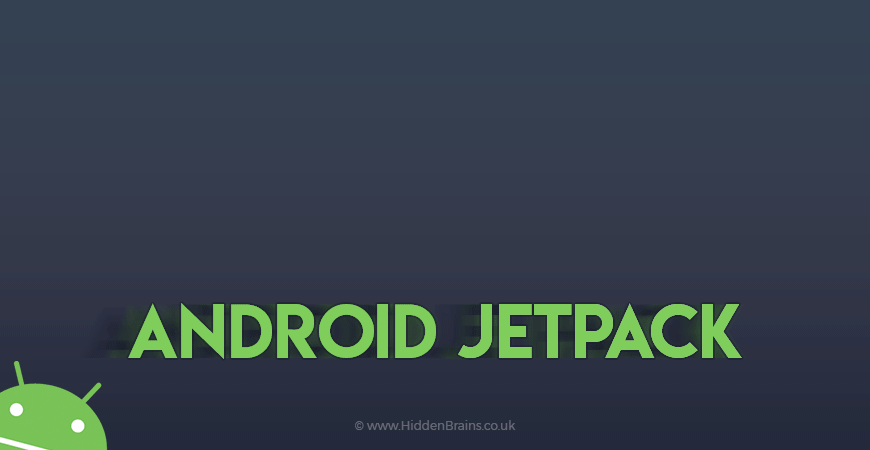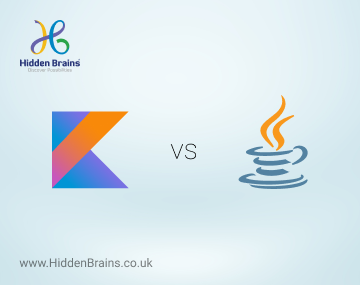
What is Android Jetpack?
Launched at the company’s Google I/O 2018 developers conference, Jetpack was dubbed as “the next generation of Android APIs designed to accelerate app development.” It provided backward compatibility to ensure your app runs on various Android versions.
Android Jetpack is a collection of Android software components, libraries, tools, and guidance which helps Android app development. Developing Android apps is simple and easy and at the same time, it’s challenging and rewarding! These components help meet industry best practices, minimize boilerplate code, and simplify complex tasks. It allows the Android app development company to focus on what matters the most “building high-quality apps.”
Here are details about Android Jetpack components
1. Foundation components
It Provides core system capabilities, Kotlin extensions, and support for multidex and automated testing.
2. Architecture components
Design robust, testable, and maintainable apps. Start with classes for managing your UI (User Interface) component lifecycle and handling data persistence.
3. Behavior Components
Integrate apps with Android services like notifications, permissions, sharing and the Assistant.
4. UI components
Make your mobile app not only easy, but delightful to use.
Core Functions of Android Jetpack in Android App Development
Accelerate Development
Components are individually adaptable but built to work together while taking advantage of Kotlin language features that make you more productive.
Eliminate Boilerplate Code
Android Jetpack manages tedious task and process like background tasks, navigation, and lifecycle management, so you can focus on what makes your app great.
Build High Quality, Robust Apps
Developed and Built around modern design practices, Android Jetpack components enable fewer crashes and less memory leaked with backward-compatibility baked in.
Here are new Android libraries announced for Android Jetpack
Ever since its launch, Jetpack has witnessed incredible adoption and momentum. Nearly 80% of the top 1,000 apps in the Play store are using Jetpack. Google announced 10 new libraries for Android Jetpack, a set of components, tools, and guidance designed to accelerate app development. It is important to hire Android app developer to leverage these features for robust app development.
- Android for Cars
- Benchmark
- Biometrics Prompt
- CameraX
- ConstraintLayout2
- Enterprise
- Lifecycle and LiveData KTX
- Security
- ViewModel with SavedState
- ViewPager2
1. Android for Cars
- Build apps to connect users on the road through Android Automotive OS and the Android Auto app.
- Users with a vehicle & Android Automotive OS can install apps specifically optimized for driver onto the vehicle’s infotainment system.
- You are able to reach even more android users with the Android Auto app.
2. Benchmark
- Library to benchmark Kotlin-based or Java-based code from within Android Studio.
- Handles warmup, measures code performance, and outputs benchmarking results to the Android Studio console.
3. Biometrics Prompt
- A beta library for entering biometrics log-in credentials.
4. CameraX
- Jetpack support library to make camera app development easier.
- It provides a consistent and easy-to-use API surface to ensure consistency across the majority of Android devices, with backward-compatibility to Android 5.0 (API level 21).
5. ConstraintLayout2
- Beta library to customize layouts, using helper classes.
- Motion and widget animation management are provided, via a MotionLayout type.
6. Enterprise
- Beta library to enable managed enterprise apps in order to send feedback to mobility management providers in the form of keyed app states.
7. Lifecycle and LiveData KTX
- Lifecycle specific Alpha library offering Kotlin coroutines which allow developers to access coroutines scopes specific to lifecycles and support for asynchronous chains with the LiveData builder.
8. Security
- Implement security best practices such as encryption and a hardware-backed keystore with user presence.
9. ViewModel with SavedState
- Alpha-stage module for ViewModel, which saves UI data where a configuration is changed and SavedState, saving application state.
10. ViewPager2
- ViewPager for screen slide transitions.
Related Post: Why should you Hire Android Developer for Your Project?
Jetpack Compose: Simplifying UI Development
Jetpack Compose is an unbundled toolkit designed to simplify UI development combining a reactive programming model with ease of use of the Kotlin programming language. Jetpack Compose is in development on the Android Open Source Project.
- Compose UI library: It contains the core UI toolkit with layout, input, text, animations, styles, widgets, and graphics.
- Compose compiler: Custom Kotlin compiler plugin that accepts composable functions, and auto updates the UI hierarchy.
A Compose application is made up of composable functions that transform application data into a UI hierarchy. A function is all you need to create a new UI component.
Jetpack Compose & its Core Principles
- Gain advantage of Kotlin and its features: Concise, safe, and fully interoperable with the Java programming language. Designed to minimize the amount of boilerplate code. This will allow to focus on your app code and help avoid classes of errors.
- Fully declarative for defining UI components: Draw and create custom layouts, as well as provide UI as a set of composable functions. The framework will manage UI optimizations and updates to the view hierarchy under the hood.
- Provide reusable building blocks to create custom widgets without starting from scratch.
- Compatible with existing views so you can adopt at own pace with direct access to all Android and Jetpack APIs.
- Material Design out of the box and animations from the start, so it’s easy to create beautiful apps that are full of motion.
- Accelerate development with tools like live preview and apply changes.
Android Jetpack is all set to redefine Android App development. Are you ready to embrace the change?
Table of Contents





